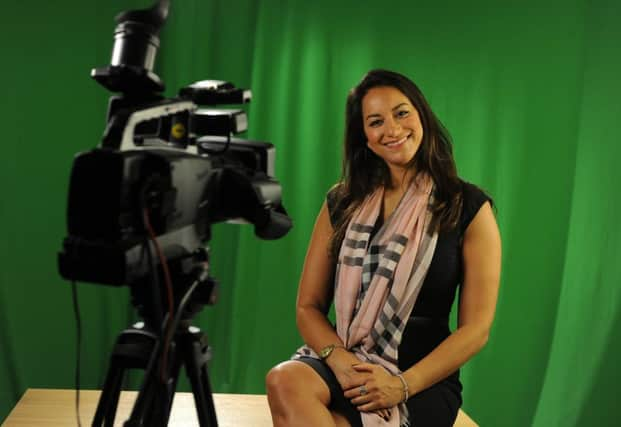Charlotte Armitage: Why we must praise work of BBC and Emmerdale in placing disabled people in spotlight


READ more
It really was a pleasure to be involved in this event and unlike some events surrounding disability in the media, rather than feeling like a ‘box ticking exercise’, much to my delight, there was a genuine feel of authenticity in the room.
It was clear that all of my fellow panellists have an honest interest in improving disability in the media with respect to on and off-screen representations, accessibility and opportunities for those with disabilities.
Advertisement
Hide AdAdvertisement
Hide AdThe panel was comprised of a diverse group of people representing different perspectives in the industry; Miranda Wayland, interim head of diversity at BBC; James Moore, Emmerdale actor and NTA winner; Charlie Swinbourne, RTS award-winning scriptwriter and myself, as head of YAFTA and Media Psychologist.
The event provided an interesting conversation and highlighted some areas for improvement in the sector.
Ultimately, the panel was in agreement that although strides had been made to have a fairer representation of disabled people on screen, there are still significant issues around: understanding needs, quota filling, naivety, logistics and stereotyping.
Collectively, a call for all TV and film productions to have a disability expert as part of the team was made. James Moore said: “By having someone who is either disabled themselves or who has knowledge and training in working with people with disabilities as part of a production team, it could really help in tackling the issues around authentic disabled representation.”
Advertisement
Hide AdAdvertisement
Hide AdI know that in my experience working in the industry, there is still a huge lack of understanding around disability. Many don’t really understand what constitutes a disability and consequently, are unaware of the associated additional needs or necessary reasonable adjustments that need to be considered.
At YAFTA we regularly receive casting requests that ask simply for a ‘disabled actor’ with no details on what disability – physical or learning. Furthermore, we’ve had casting directors ask why a learning disabled actor needs a support worker to get to an audition when everybody else manages without one. These attitudes indicate that there is still work to be done to ensure that film and TV productions are representing and engaging disabled people fairly.
Working with disability on-screen has to be genuine, the roles cannot be created just to fill the quota. Not only is this degrading for the actor but it doesn’t make entertaining viewing because the audience can see straight through these decisions.
As I’ve said many times, chan-ges that are decided at the top with respect to quotas, need to be accompanied with clear lines of communication through to the production set as to how to accommodate working with those with disabilities.
Advertisement
Hide AdAdvertisement
Hide AdIt is perhaps this breakdown in communication or lack of knowledge and understanding which causes difficulties in the industry, but without question it is changing for the better.
Miranda Wayland said the BBC was looking for a 12 per cent target in disability inclusion and diversity. Hopefully through creating policies that can be adhered to throughout the BBC, this will help those working in production to understand their requirements and the role that they have to play in order to increase disability representation.
It was an incredibly positive evening and something that we look forward to repeating in the future. The event can be listened to again on the BBC Sounds app.